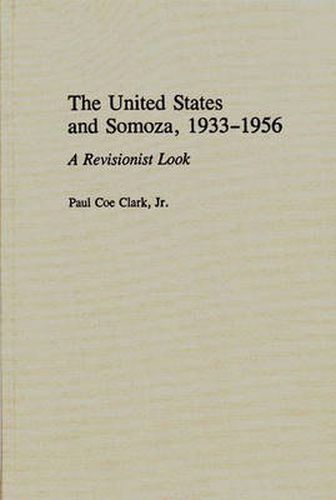Readings Newsletter
Become a Readings Member to make your shopping experience even easier.
Sign in or sign up for free!
You’re not far away from qualifying for FREE standard shipping within Australia
You’ve qualified for FREE standard shipping within Australia
The cart is loading…






This study of US relations with the founder of the Somoza family dynasty in Nicaragua attempts to break new ground in diplomatic history. Based on the diplomatic record, this work takes a strong revisionist stance, arguing against the commonly accepted view that the United States created the Somoza regime and kept the first Somoza in power as a surrogate to protect US interests in Central America. On the contrary, the author suggests that US officials - principally foreign service officers - fought tirelessly for democracy in Nicaragua during most of the long Somoza Garcia era. Clark’s work sets out to show that throughout the 1930s and 1940s there was a consistent effort by the US government to oppose dictatorship in Nicaragua, an effort not diminished until Cold War obsessions finally overtook - and eventually consumed - Washington’s Latin American policymakers. Clark argues that Somoza’s continuance in power was due to his own political brilliance, and not to US support for his regime. Somoza simply outlasted American opposition to his dictatorship. By the 1950s, the Cold War had driven Washington to embrace the most reprehensible of allies as long as they joined the anti-communist crusade. Clark’s diplomatic history should be useful for scholars and students of US foreign relations, US-Latin American relations, and US diplomacy.
$9.00 standard shipping within Australia
FREE standard shipping within Australia for orders over $100.00
Express & International shipping calculated at checkout
This study of US relations with the founder of the Somoza family dynasty in Nicaragua attempts to break new ground in diplomatic history. Based on the diplomatic record, this work takes a strong revisionist stance, arguing against the commonly accepted view that the United States created the Somoza regime and kept the first Somoza in power as a surrogate to protect US interests in Central America. On the contrary, the author suggests that US officials - principally foreign service officers - fought tirelessly for democracy in Nicaragua during most of the long Somoza Garcia era. Clark’s work sets out to show that throughout the 1930s and 1940s there was a consistent effort by the US government to oppose dictatorship in Nicaragua, an effort not diminished until Cold War obsessions finally overtook - and eventually consumed - Washington’s Latin American policymakers. Clark argues that Somoza’s continuance in power was due to his own political brilliance, and not to US support for his regime. Somoza simply outlasted American opposition to his dictatorship. By the 1950s, the Cold War had driven Washington to embrace the most reprehensible of allies as long as they joined the anti-communist crusade. Clark’s diplomatic history should be useful for scholars and students of US foreign relations, US-Latin American relations, and US diplomacy.